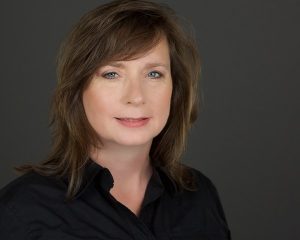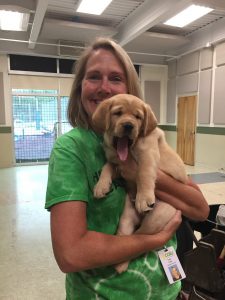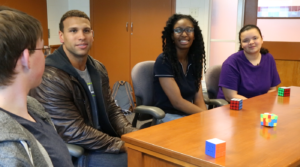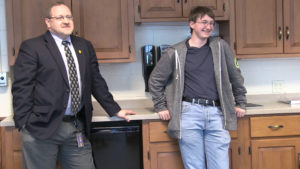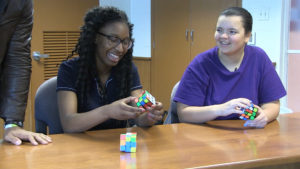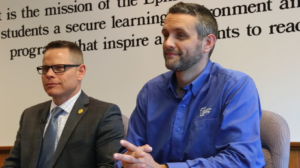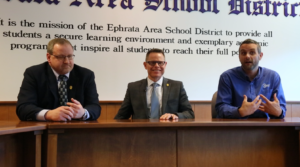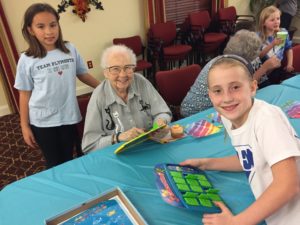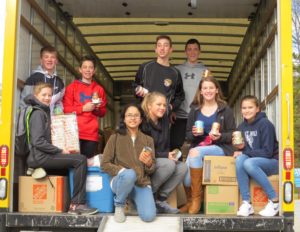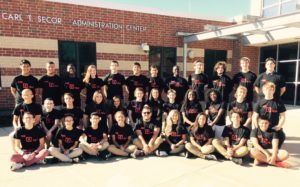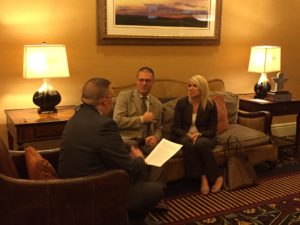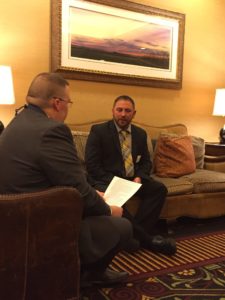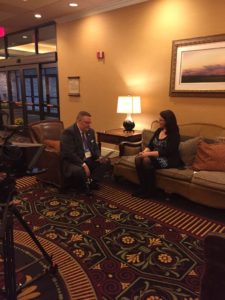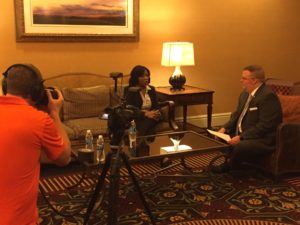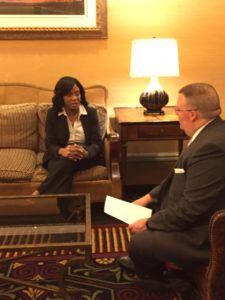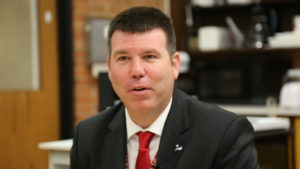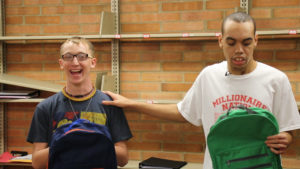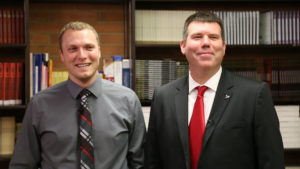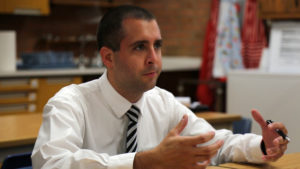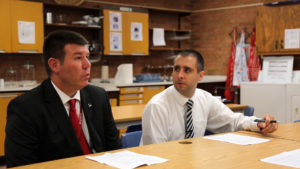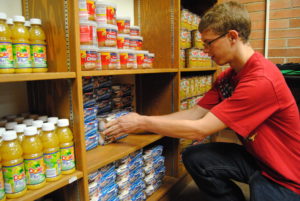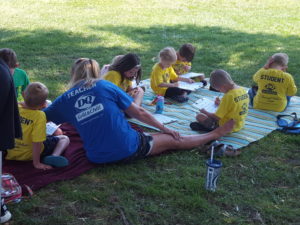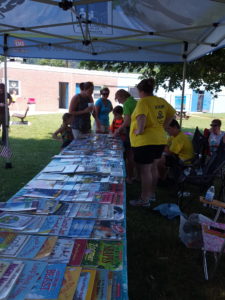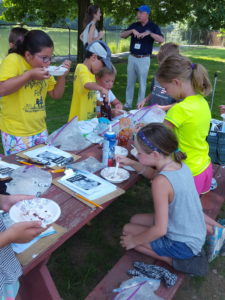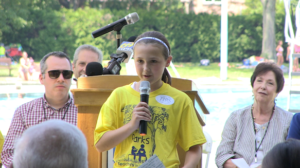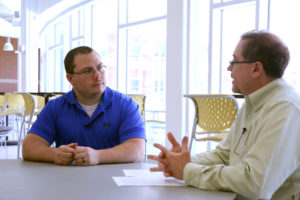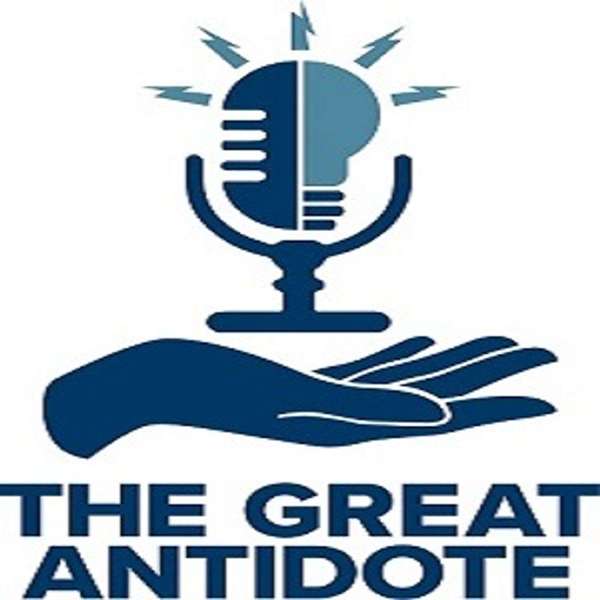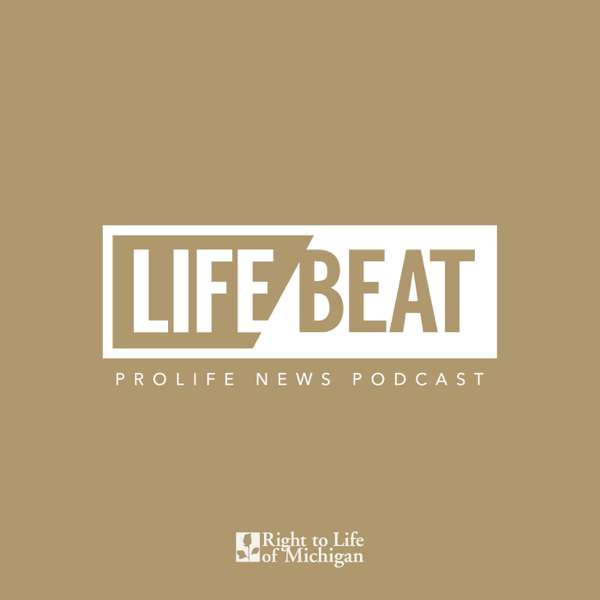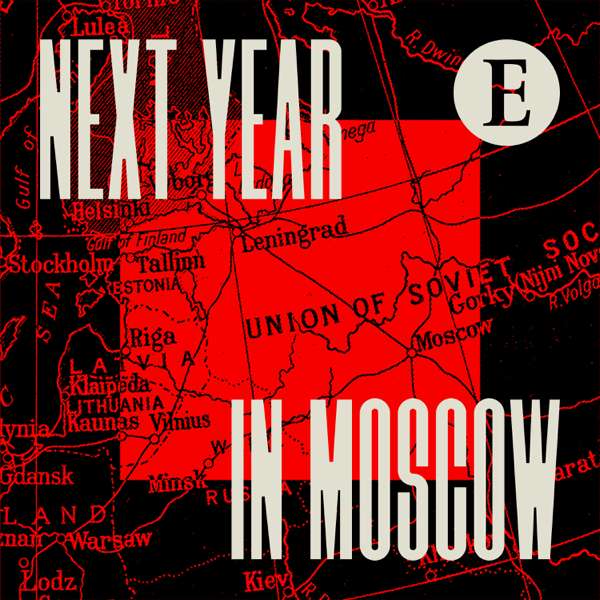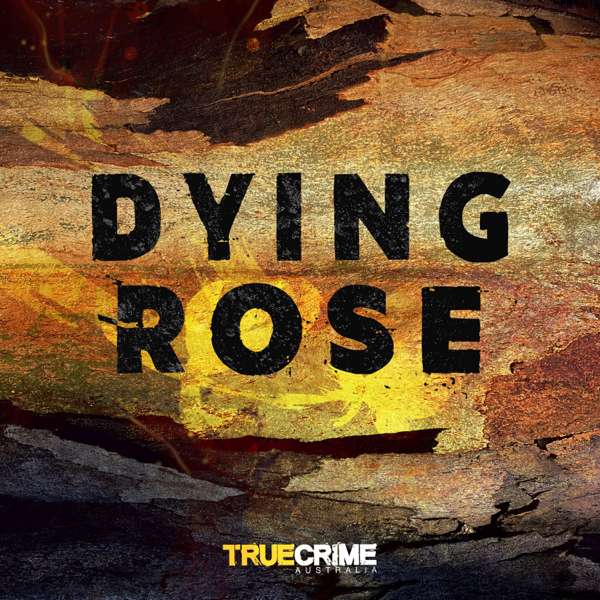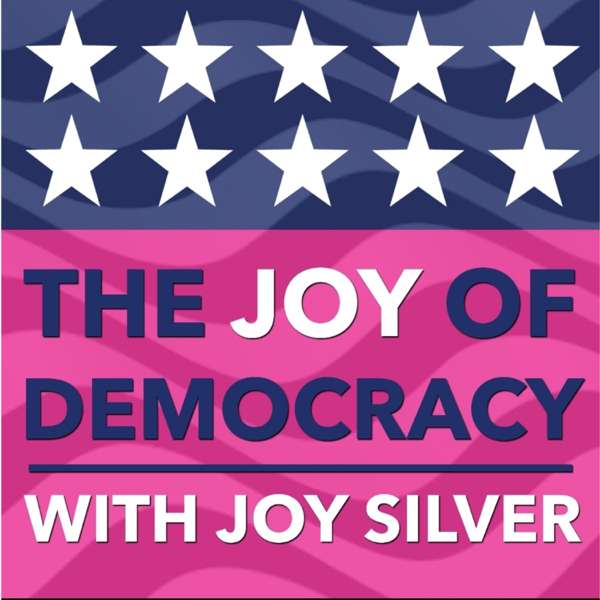On this episode of Keystone Education Radio, Podcast Host Annette Stevenson is joined by a panel of adults and students who run
York Suburban Education Foundation’s Impact Foundation, a student-lead extension of the organization. Annette is joined by
Sarah Reinecker, York Suburban Education Foundation immediate past chair and founding member;
Gina Trimmer, chairman of the Impact Foundation and York Suburban Education Foundation board member;
Janelle Rice, Impact Foundation president and senior;
Leona Strine, Impact Foundation Vice-President and junior;
Krissy Sprankle, Impact Foundation Treasurer and senior; and
Marcella Rolle, Impact Foundation Board Member and freshman. The group discusses the objectives of the Impact Foundation and how it has adapted to serve the larger York Suburban community during the COVID-19 pandemic.
Skip to: 02:06 What was the motivation behind creating The Impact Foundation?
We wanted to teach students how to take action and be involved in doing something to impact the lives of their fellow students. And we also wanted to teach them about how to actually operate a non-profit, to be able to sustain that work over time.- Sarah Reinecker
We also build collaborations throughout the community. We really want to build on what’s already there and latch on to organizations that are already doing amazing work. – Sarah Reinecker
Skip to: 07:55 During the COVID-19 pandemic, school districts have been at the center of communities providing essential resources. How is the foundation working with high school age children to impact families in the community?
But this is a two-way street. So high school students might have to provide for their families, so we’ve adjusted our operations so that students can provide and take things home. – Leona Strine
Skip to: 10:55 As a freshman, you are brand new to the Impact Foundation. There are many extracurricular opportunities in high school – why were you interested in becoming involved in this organization?
Skip to: 12:15 How was the foundation able to transition the weekend food backpack program into a food pantry to serve the community during the COVID-19 pandemic?
You can see the type of relationships that we’re building, well beyond just providing food and a food pantry. – Sarah Reinecker
Skip to: 15:06 As schools begin confronting plans to reopen in the fall, how does the YSEF foundation plan to assist students as they return to school buildings?
Skip to: 16:46 Will any of the YSEF’s overall initiatives change in the fall in response to the COVID-19 pandemic?
We are preparing to help more students just because the economic burden that this pandemic is having on a lot of families, we’re preparing to provide things for more students than we have in the past. – Krissy Sprankle
Skip to: 20:01 What are some of the biggest challenges the Impact Foundation has faced since its inception, and how did the foundation deal with those hurdles?
We used to serve only a small portion of families with the backpacks, where now, we have served over 90 families. And it’s not just a child who’s getting a backpack to take home. It’s the entire family that is getting a full car load of items for their whole family for the entire week. – Gina Trimmer
Skip to: 26:02 What has been your favorite part about your involvement in the impact foundation?
I think the biggest thing for me was seeing the different variety of socioeconomic standings in our community, in just our school district. It really shows you how to be grateful for what you have and learn of the other people that aren’t in the same situations as you. – Janelle Rice
Annette Stevenson: Today, we will hear more about the work of the Impact Foundation and how it has served the York Suburban community during the COVID-19 pandemic. We are joined today by numerous panelists for this discussion. Welcome, Sarah Reinecker. You are the York Suburban Education Foundation immediate past chair and founding member. Welcome, Sarah.
Sarah Reinecker: Thank you so much for having us.
Annette Stevenson: Also with us, Gina Trimmer, chairman of the Impact Foundation and York Suburban Education Foundation board member. Welcome, Gina.
Gina Trimmer: Thank you. I’m honored to be a part of this podcast.
Annette Stevenson: Also, Janelle Rice, Impact Foundation president and a high school senior. Welcome, Janelle.
Janelle Rice: Thank you for having us.
Annette Stevenson: Leona Strine, Impact Foundation vice president and a high school junior. Thanks for joining us, Leona.
Leona Strine: Thanks for having us.
Annette Stevenson: Krissy Sprankle, Impact Foundation treasurer and a high school senior. Thank you.
Krissy Sprankle: I’m super excited to be here.
Annette Stevenson: Thanks, Krissy. And last, but certainly not least, Marcella Rolle, Impact Foundation board member and a high school freshmen.
Marcella Rolle: Thank you.
Annette Stevenson: Thanks for all of you joining us to talk about this. This is going to be a great discussion. Let’s start with the beginning. What was the motivation behind creating the Impact Foundation?
Sarah Reinecker: Thanks, Annette. This is Sarah. I think I can easily tackle that in about … I could talk forever because it’s been such a wonderful journey, but I’ll wrap it up in about a minute, to say that the Education Foundation, the York Suburban Education Foundation was formed in 2008. In 2015, we’d really seen as an organization, working alongside the York Suburban School District, an increase in the percentage of economically disadvantaged students. To give you a frame of reference, in about 2008, the number was teetering around 12 to 15% of economically disadvantaged students. And that’s the actual state number that’s reported to the state.
Now, we’re looking in 2020, it’s nearing 40%. We wanted to explore at the Education Foundation, how we could support and impact the social needs of our students. Up until that point, we were really focused on educational needs, meaning we give classroom grants to teachers. But then we started looking at the growth and patterns that were manifesting in the school district, and we decided to do something about that. One of the things that we really wanted to do as part of that conversation, is involve our students in the solution.
So, we formulated the Impact Foundation in 2015, and it became an official committee of the Education Foundation and added to our bylaws. And then we went from there to start developing the work. The goal was two-fold from the beginning. We wanted to teach students how to take action and be involved in doing something to impact the lives of their fellow students. And we also wanted to teach them about how to actually operate a non-profit, to be able to sustain that work over time.
So, to date, we’ve raised over $85,000 in cash and countless number of in–kind contributions that have sustained the work. And we put together an organizational structure. I’m going to actually punt it over to Gina, to talk a little bit more about the organizational structure that we put in place.
Annette Stevenson: Yeah, great.
Gina Trimmer: Thanks, Sarah. So, we’ve taken that organizational structure and mimicked it on a typical board that is in a non-profit organization. So, we do have an executive board that consists of our president, VP, treasurer, secretary and marketing as well as now we have almost close to 30 board members. Actually, we just did a nice recruiting and we have 46 students on the Impact Foundation.
To just give you an idea, as far as what these students do, they meet every month in a flex schedule during their school day. We have a formal board meeting that they go over all of their different committees and different operations that they’ve done in the different Impact Closets. The organization, to just give you an idea as far as how it operates, it costs us about $6000 annually to operate our Food for Thought program, and that’s the backpack program that we will get into in a little bit. As well as the Impact Closets, it costs about $1000 a year to operate.
And just to, again, give you another idea, we’re very reliant on those in–kind donations that we get from numerous people within our community. Those things vary from mattresses to lawnmowers, to dressers and grills. We have all kinds of wonderful stories that we’ll be able to tell you throughout this podcast about the different impacts with some of those items that we’ve made on families.
Sarah Reinecker: One other thing, Annette, that I’d like to add, is we’ve really developed core values over time with the students. It’s these base values that I think have sustained the program so successfully as we’ve grown it over the past five years. Our goal from the beginning, and it still remains, and now in COVID, what we’re calling COVID times, it really has manifested itself to a reliability on our original goals, which was building sustainable relationships with our families. And really, the ability to impact families one family at a time is because we have the ability to sustain and build relationships.
And then we also build collaborations throughout the community. We really want to build on what’s already there and latch on to organizations that are already doing amazing work. I think one thing that we recognized when we did a feasibility study back in 2015, that was clear to us, the teachers and administrators in the district have been doing this stuff for years. I mean, they’re reaching into their own individual pockets to help with some of the extenuating circumstances and needs of their students.
But as we demonstrated the increase in the economically disadvantaged population, you can’t do that forever, especially when your needs are increasing in the student population. So, we formed ourselves to be an add-on and a help to what the teachers and administrators and the school district have been already doing for years before us.
Annette Stevenson: Clearly foundations are important and essential to school communities ongoing, but you mentioned the COVID-19 pandemic as an impact point. And school districts, I think, it’s been brought even into clearer light, that school districts are really at the center of communities, providing essential resources that go well beyond educational experiences to students.
Is there more you can tell us? How is the foundation working with high school aged children to impact the families in the community?
Leona Strine: So, for the Impact Foundation overall, we have not had much access during COVID times to our pantry and helping in there, so we’ve had to help in other places. So, such as donating to the pantry, making craft bags of supplies we have in our house to provide for these families, and sewing masks, and making feminine hygiene bags and birthday boxes. At times we were allowed in the closet, oh, in the pantry now, so we helped organize it in times. We’ve also donated books and balls that the kids can play with it when they come to pick up their things, to help really establish those relationships. And we’ve also wrote tons of thank you cards to people who’ve donated to us.
But this is a two-way street. So high school students might have to provide for their families, so we’ve adjusted our operations so that students can provide and take things home. So, because during our weekend backpack program, when we provide to Valley View and Indian Rock, which is our two elementary schools, they can only carry one to three pounds of food. But with high school students, they can carry more things because they’re bigger, so we really try to focus on that, and having high school student provide for their families.
And establishing relationships with those students, so they’re comfortable coming to our pantry, which is an issue we’ve been seeing. So, our social worker, Ms. King, has really helped us establish those relationships with those high school students, and directing those students to us, and they can feel comfortable. Also, during COVID times, we made a COVID-19 website and we helped to make it more accessible to people by translating the website. So, a senior that just graduated, translated the whole website into Spanish with our Spanish teacher, Senora Kinneman which has really helped us.
We even have a story for that. This one mother called Ms. Reinecker and Ms. Trimmer, and she spoke no English whatsoever. So, we called Harrison, which is the student that translated it, and Harrison was able to take the order and everything and make the mother feel comfortable. So, when Ms. Reinecker came to deliver it, even though they’d never met, nor barely talked to each other, she felt comfortable being around Ms. Reinecker and delivering this stuff to them.
Annette Stevenson: That’s great. So, overcoming the language barrier there.
Leona Strine: Mm-hmm (affirmative).
Annette Stevenson: Awesome. So, Marcella, you are the only freshmen of the group. As a freshman, you’re brand new to the Impact Foundation. There are many extracurricular opportunities available to you in high school. What made you interested in becoming involved in this particular organization?
Marcella Rolle: When I was granted the opportunity to be a part of this organization, I noticed that I had prior knowledge of the Impact Foundation’s influence in our community. I have many friends who’ve benefited from the organization.
For instance, one of my peers was going through some difficult financial struggles and they could not afford to feed their entire family. The family had many people who they needed to provide for, as well as many households to manage. I would often see this student dozing off during classes due to lack of nutrition, which made me feel very dismal when I knew the student wasn’t able to reach their full potential because of unfortunate circumstances. I then proceeded to search tirelessly for different resources that could aid the family during this difficult time. And that was my first encounter with the foundation. The Food for Thought program left a tremendous impression on the family, and I could see the student’s growth, as a student and as an individual.
Annette Stevenson: That’s awesome. What a great testimony. So, you’ve already talked a bit about the food pantry and some of the transitioning that’s had to occur. How is the food delivered? Is there curbside pickup? What does some of that transition look like? Are the students able to come themselves? You mentioned the weight that they can carry, but how does that backpack program work during pandemic and school closures and things like that?
Sarah Reinecker: I can speak to that. Mostly, it’s Gina and I that need to speak to this specific question, only because the students have not been able to be in the pantry, like Leona had mentioned. So, we’ve set up a system that it is curbside pickup. It’s only adults that are operating it now, and we take orders online. So, they’re customized boxes, and they’re inclusive of both food and toiletry items, and we’ve also added some other items that I’m going to let some of the other students talk about, as a result of being in this pandemic. We just put the items out on a table that we have set out, and so then the family members can come after we’ve gone back into the building, and take them and put them in their cars.
We have been able to really establish relationships though by distant speaking, and it really has made a big difference in terms of the relationships over time. Some of the ancillary benefits that have come, beyond serving families for food, as an example, this past week, I just had a family who called me late at night on Wednesday because her young son, who’s only coming out of first grade, had an abscessed tooth and was in a lot of pain. They’re a family that are not from America, so they’re not as versed in the American healthcare system. And we were able to connect them with dental resources to help take care of that problem.
So, you can see the type of relationships that we’re building, well beyond just providing food and a food pantry. I’m going to look to some of the other students, speak up you guys, in terms of giving some examples of what types of products we’ve added as a result of COVID.
Leona Strine: So, we’ve added diapers, for example, and baby wipes, just things that we normally wouldn’t have because we’re geared toward K-12, not younger kids. So, we’ve added diapers and wipes and baby formula.
Sarah Reinecker: Yeah. That’s mainly what we’ve added so far that goes beyond. That’s a really good framework, Leona, that we’ve added beyond, younger than kindergarten, which is traditionally what the school district services.
Annette Stevenson: Great. So as schools are contemplating reopening in the fall, which is what we’re hearing a lot about, and we’re not sure what that reopening is going to look like yet, but how does YSEF Foundation plan to assist students as they do return to the school building or in whatever hybrid scenario that may become? How will students be assisted in that?
Janelle Rice: Well, a lot of it is we’re working with York Suburban School District to discuss how they plan on reopening, and we tend to follow what their guidelines are. So, a lot of it is still up in the air, but we know some things we definitely are going to have to alter, such as our Food for Thought distribution. We would tend to drop them off at the schools and hand-pack them with all of us in the room. We know that we’re going to have to alter how we distribute them now.
Impact Foundation only operates our Valley View and Indian Rock backpack program, and we have other partners that help with the other schools. So, we know we’re going to have to start communicating to see how they plan on continuing with the Food for Thought programs. During the school year, we don’t make new events, we try to build off of new events and that’s how we get a lot of our resources. So, we know now that we’re going to have to start thinking of other ways and get creative with how we’re getting the different needs that our community needs.
Annette Stevenson: Right. So, it sounds like you’ve already started thinking ahead quite a lot there, and that leads into maybe the overarching strategy. So, will any of YSEF’s overall initiatives or objectives change in the fall? When you envision that, any of your overarching strategy changing in response to the pandemic?
Krissy Sprankle: Well, similar to the rest of the country, we’re going to have to adjust our operations, so things will look a little different. I’ve been running our school supply program. And that program is just we provide school supplies for students based on the supply list that their teacher provides so that every student can go to school, however that looks like, prepared with all of the supplies they need so that they aren’t left out of that excitement of new school supplies and their new teacher and friends.
So unlike previous years, I’ve been doing a lot of the work just with my own family, because we can’t really be around all the other members right now, and so I’ll be working with a smaller committee to pack those, once we get around to that. And then the distribution, I’m sure it will look a little different. We are preparing to help more students just because the economic burden that this pandemic is having on a lot of families, we’re preparing to provide things for more students than we have in the past.
Annette Stevenson: Yeah. I imagine that’s going to be needed.
Sarah Reinecker: Krissy, I think this is a great opportunity for you to talk about Luther Memorial.
Krissy Sprankle: So, one of the things that has been really vital to all of our operations has been our partnership with the Luther Memorial Church. They’re right next to our school, which is super convenient for us. We started that partnership in January 2017. Our Impact Foundation Board met with Pastor Laura Haupt about using their space to run our Food for Thought program. Over the past few years, our partnership has just continued to grow, and especially exponentially since the pandemic has started.
Because during COVID, they’ve let us use a lot of extra rooms and spaces since they aren’t utilizing them. We’ve taken over their preschool room for the school supply operation because we don’t have access to the schools. So that’s provided me the space to store everything, take inventory and all of that kind of stuff. And then another space that’s been really valuable, is they’ve let us use their refrigerators and freezers, which has been extremely important as we convert to a food pantry. So that’s been extremely important and we’re so thankful for their generosity.
And as things start to open up and we transition back into normal, everyday life, we want to remain a food pantry. So, we received a $13,000 grant from the State Department of Environmental Protection to purchase a commercial fridge and freezer for our room that we have all the time. The Luther Memorial Church volunteers have already helped us work out the electricity situation, so we’re all good to go once things get back up and started. Their generosity has been and always will be extremely vital to all of our programs.
Annette Stevenson: What a great relationship and partnership, and so handy nearby too. So, you talked about a challenge within that story actually, but what are some of the biggest challenges the Impact Foundation has faced? Not necessarily related to COVID-19, just challenges faced since its inception. And then if you can, let us know how the foundation dealt with those hurdles.
Gina Trimmer: If I may, since I’ve been involved with YSEF and the Impact Foundation, one of our biggest struggles is just getting the awareness and the education out to the families, that we’re here for them, that we want to help, and we’ve got a community who can help those in need. There’s always some good things that come out of the bad, and in today’s world, what we’re finding is out of this, we are having that awareness, that people are finding out about us.
As one of the girls mentioned earlier, we used to serve only a small portion of families with the backpacks, where now, we have served over 90 families. And it’s not just a child who’s getting a backpack to take home. It’s the entire family that is getting a full car load of items for their whole family for the entire week. So, I think that has been one of our biggest, what I feel, as my biggest struggle in trying to help as a board member. I feel like we’re starting to overcome that.
Annette Stevenson: That’s great. How about anybody else? Any other challenges that you’ve encountered?
Sarah Reinecker: Well, I can actually say, I think this is a challenge that was in adults’ minds, but then the kids figured it out for us, honestly. In the beginning of this, one of the biggest challenges that the adult advisors thought we were going to have is the constant transition year after year of the actual Impact Foundation group itself. And we were really worried about that. We couldn’t really get our heads around how the sustainability would be affected over time because of that.
But the kids, they’re really used to it. I’m going to turn it off to the president of the Impact Foundation, Janelle, to talk a little bit more about the recruitment process and some pieces of the puzzle they put in place to help with that.
Janelle Rice: So, in the past years, we have mostly used students that just want to sign up. And we found that we had a lot of students have interest, but they’re also involved in a lot of other things, so we want more students that we wouldn’t typically see in the organization. So, before COVID, we would go to the middle school and high school and have assemblies to raise awareness about what our organization does. And obviously, we cannot have a hundred students in a room listening to us talk now, so instead, we used Tik Tok, the music video app, and we did that to help reach out because we know a lot of students our age are very into Tik Tok. So, we did that to let everyone know that we were having a Zoom meeting information session about what Impact Foundation was. And we also used Instagram and Facebook to also raise awareness about that.
And that way we had a Zoom meeting with Marcella was there, and us, myself, Krissy and few other board members, we were able to help and discuss what exactly we do. And because of that, we gained a lot of new members and it made it a lot easier than we thought it was going to be. They could ask us questions and we could be upfront with them and tell them exactly what the organization does instead of thinking they know what it is and thinking they may want to be involved. Instead, they had a very clear, exactly what we were doing. And then we’re also now, were able to tell them what we’re doing during COVID-19, and just show how if they do decide to join, they will probably also be taking place in that, helping with that, because that’s ultimately what the time we live in.
Sarah Reinecker: I think one of the fun things for me to see, because I’ve been involved in this from the beginning, is from 2015 to 2020, the students’ creativity in terms of recruitment and interaction with one another and building their own relationships, two things.
One, is the actual students involved in the Impact Foundation has grown from 12 students the first year, to now 45, and that’s been consistent over the past couple of years. But the other thing that became clear to us when we launched into, what we’re calling COVID times, is it was so clear that the ability for us to launch the effort that we did to transition, literally within four days, transition a food backpack room to a full-fledged food pantry, was because of the 120 students that had come before this year’s group, and the four additional advisors that had been helped to build the organization from the beginning.
It was so clear that the teamwork that’s involved over time to create a sustainable model, so that when you’re faced with such a stressful situation, it’s those organizations that can stand up and really do it and have a huge impact. It really is a testament to the strength of the students, and at each step of the way, how we had to build the program that got us to today to be able to react the way we did, and transition to be able to help families during this very worldwide, stressful time.
Annette Stevenson: Yeah. So, in conclusion, this is aimed at the students, what has been the biggest reward or your favorite part about your involvement in the Impact Foundation?
Janelle Rice: I think the biggest thing for me was seeing the different variety of socioeconomic standings in our community, in just our school district. It really shows you how to be grateful for what you have and learn of the other people that aren’t in the same situations as you. You see the other things that you have are sometimes considered almost luxuries for other people, and you don’t ever think about it, and getting to reflect on that is really important.
It also helped to give me a lot of new opportunities. Part of that was getting to write a grant with two seniors that just graduated, Maia Carney and Rachel Ludwick, to The Harley-Davidson Corporate Foundation. And Sue Bowman, who helps write a lot of our grants, took us through each step of this. And in the end, we were able to have a grant of $2,000 to help with the general operations of the food insecure program. So, I think overall, it just helped, it really made me grateful for everything I have, and also really gave me a lot of new opportunities that I don’t think I would have in any other organization.
Annette Stevenson: Great. Anybody else? Rewards or best part about being involved?
Krissy Sprankle: Just to add onto what Janelle said, I know that within Impact Foundation, I’ve grown so much, both as a person and as a leader. I’ve learned so many important skills that I’ll carry into my future, like public speaking and giving professional presentations. I know when I was a freshman, I would have never done something like this, so that tells you how much I’ve learned and how much I’ve grown through over these past three years. I’ve also learned a lot about working within a board.
And just one example of the skills that we’re learning in this organization, both on us and the organization, is in 2018, our board presented to our original startup donor, the York County Community Foundation. They gave us $5,000 in 2015 to build out our six Impact Closets. So, we wanted to update them on how we’re doing now. And within that presentation, one of their members was so impressed by our student presenters and their ability to convey information, that his company actually gave us another $5,000 grant on top of that. So, not only are the skills that we’re learning in Impact Foundation important to us, but they’re also just very effective for the organization as a whole.
Annette Stevenson: Wow. That’s great. How about you, Leona? Anything that stands out to you?
Leona Strine: For me, it’s just helping others and building those relationships with others and seeing how they’ve grown over the years. When I was in middle school, we just developed our middle school program, and just building those relationships with students and then coming into the Impact Foundation, and just seeing them grow in a more, it’s just amazing.
Annette Stevenson: Yeah. And Marcella, how about you? I’m assuming you plan to continue on through the remainder of your high school years?
Marcella Rolle: Yes. I mean, I’m brand new to the organization, so I have no experience. But I’m hoping that I’ll learn how to help others and know how to, I guess, care and be grateful for what you have.
Annette Stevenson: It sounds like you’re going to have lots of great experience, from what the others have expressed.
Well, I want to thank each of you for being part of our podcast today. This has been such a great conversation and I hope that it will inspire other school districts to take a look at how their foundations might be able to involve students. Thank you to each of you.
Gina Trimmer: Thank you, Annette.
Sarah Reinecker: Thank you. Thanks for having us.
Annette Stevenson: You’re absolutely welcome. Thank you. Such great insights from the students too. Thank you, guys.
Leona Strine: Thank you.
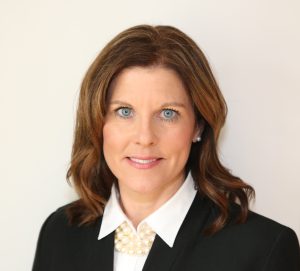 Sarah Reinecker
Sarah Reinecker
Sarah Reinecker is a founding and current board member of the York Suburban Education Foundation (YSEF), YSEF immediate past president, helped found the student-led Impact Foundation (IF) and currently sits on the IF committee as an advisor. She is passionate about leveling the playing field to help every student thrive.
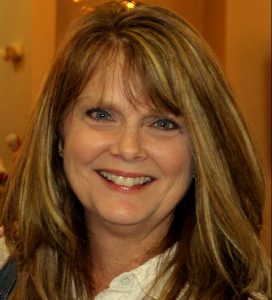 Gina Trimmer
Gina Trimmer
Gina Trimmer is a board member for the York Suburban Education Foundation. She also serves as an adult advisor and chairman for YSEF’s Impact Foundation.
Marcella Rolle
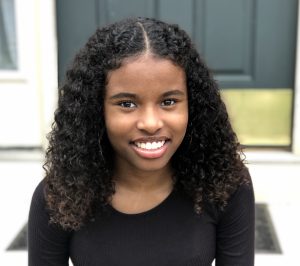
Marcella Rolle is an upcoming freshman at York Suburban High School. She is a new member of the York Suburban Impact Foundation and a former student board representative of the York Suburban Communities That Care Alliance (YSCTC). Marcella is a distinguished honor roll student and was a former captain of her basketball team in eighth grade. She was a member of the York Suburban Middle School track team and an athlete who participates in the USATF and AAU track and field organizations. Marcella was invited to attend the Junior National Young Leaders Conference (JrNYLC) in Washington, DC, this summer. However, due to COVID-19, she will be attending the conference next year. Marcella is looking forward to being an active member of the York Suburban Impact Foundation.
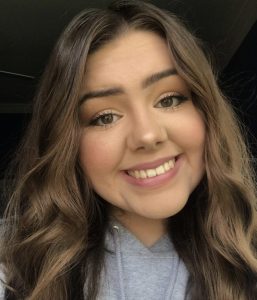 Leona Strine
Leona Strine
Leona Strine is a junior at York Suburban High School and vice president of The Impact Foundation. She enjoys helping others and making a difference. Leona is also a York Suburban Link Crew Leader and a player on York Suburban’s Varsity Softball Team. She hopes to become a social worker in the future.
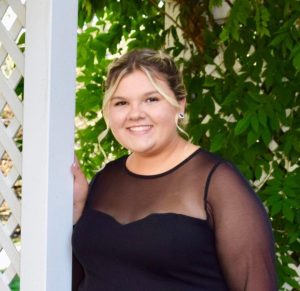 Janelle Rice
Janelle Rice
Janelle Rice is a senior at York Suburban Senior High School. She is the 2020-2021 president of Impact Foundation and acted as the vice president during the 2019-2020 year. She loves to help others and Impact Foundation has allowed her to do that. Aside from Impact Foundation, Janelle is very involved in her school’s extracurricular activities such as tennis, the school musicals and other clubs.
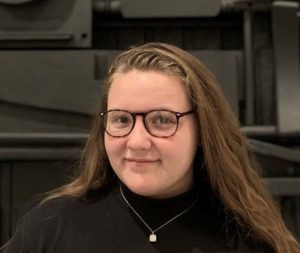 Krissy Sprankle
Krissy Sprankle
Krissy Sprankle is a senior at York Suburban High School. This will be her fourth year in the Impact Foundation and second year as the treasurer. She loves to be active in the community and Impact Foundation is the perfect way to do that. Outside of Impact Foundation Krissy participates in Link Crew, Amnesty, Student Council, NHS, NEHS and Mini-THON.
York Suburban Education Foundation
The post The Impact Foundation: Students Serving Their Community appeared first on Keystone Education Radio.

 Our TOPPODCAST Picks
Our TOPPODCAST Picks  Stay Connected
Stay Connected


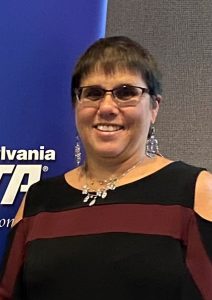
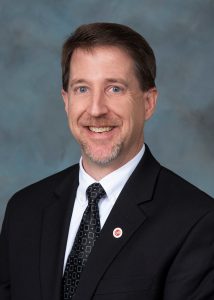
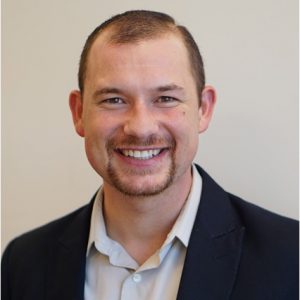 Thomas Arnett is a senior research fellow for the Clayton Christensen Institute. His work focuses on using the Theory of Disruptive Innovation to study innovative instructional models and their potential to scale student-centered learning in K–12 education. He also studies demand for innovative resources and practices across the K–12 education system using the Jobs to Be Done Theory. Thomas began his work in education as a middle school math teacher in Kansas City Public Schools through Teach For America and as an Education Pioneers fellow with the Achievement First Public Charter Schools. He has also served as an elected trustee and board president for the Morgan Hill Unified School District in Morgan Hill, California, and currently serves as a member of the board of Compass Charter Schools in California. Thomas received a BS in Economics from Brigham Young University and an MBA from the Tepper School of Business at Carnegie Mellon University.
Thomas Arnett is a senior research fellow for the Clayton Christensen Institute. His work focuses on using the Theory of Disruptive Innovation to study innovative instructional models and their potential to scale student-centered learning in K–12 education. He also studies demand for innovative resources and practices across the K–12 education system using the Jobs to Be Done Theory. Thomas began his work in education as a middle school math teacher in Kansas City Public Schools through Teach For America and as an Education Pioneers fellow with the Achievement First Public Charter Schools. He has also served as an elected trustee and board president for the Morgan Hill Unified School District in Morgan Hill, California, and currently serves as a member of the board of Compass Charter Schools in California. Thomas received a BS in Economics from Brigham Young University and an MBA from the Tepper School of Business at Carnegie Mellon University. encourage creativity, and foster justice and belonging in schools, libraries, museums and more. A graduate of the University of Notre Dame and also Duke University, Gregg holds honorary degrees from Carlow University and Saint Vincent College. He is an advisor to the Brookings Institution and the Fred Rogers Center, and has been cited by Barack Obama, Richard Branson and the Disruptor Foundation as an innovator and thought leader.
encourage creativity, and foster justice and belonging in schools, libraries, museums and more. A graduate of the University of Notre Dame and also Duke University, Gregg holds honorary degrees from Carlow University and Saint Vincent College. He is an advisor to the Brookings Institution and the Fred Rogers Center, and has been cited by Barack Obama, Richard Branson and the Disruptor Foundation as an innovator and thought leader.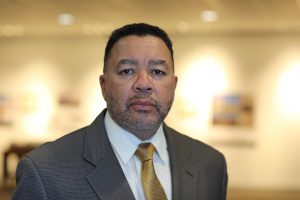
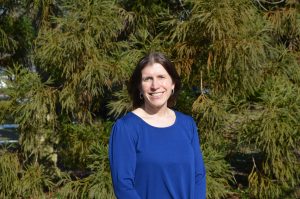 Shannon Fredebaugh-Siller works to connect people of all ages to the natural and historic wonders on Heritage Conservancy’s preserved properties. She develops innovative cross-curriculum educational programs in partnership with local schools and works to provide moments of awe in nature for individuals, partner organizations, and students through community programming. Collaborating with communities and across regional watershed-wide initiatives, Shannon helps to connect the local work that Heritage Conservancy does to broader environmental initiatives. Shannon holds a B.A. in Zoology and Environmental Studies from Ohio Wesleyan University and an M.S. in Natural Resources and Environmental Sciences from University of Illinois at Urbana-Champaign. Shannon has worked on research projects ranging from wildlife behavior and habitat use to species diversity in biofuel agricultural systems and many more.
Shannon Fredebaugh-Siller works to connect people of all ages to the natural and historic wonders on Heritage Conservancy’s preserved properties. She develops innovative cross-curriculum educational programs in partnership with local schools and works to provide moments of awe in nature for individuals, partner organizations, and students through community programming. Collaborating with communities and across regional watershed-wide initiatives, Shannon helps to connect the local work that Heritage Conservancy does to broader environmental initiatives. Shannon holds a B.A. in Zoology and Environmental Studies from Ohio Wesleyan University and an M.S. in Natural Resources and Environmental Sciences from University of Illinois at Urbana-Champaign. Shannon has worked on research projects ranging from wildlife behavior and habitat use to species diversity in biofuel agricultural systems and many more.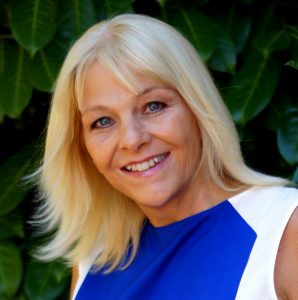 Dr. Donna Beegle is the co-founder and president of Communication Across Barriers, which provides resources and trainings that aim to improve communication and relationships across poverty barriers. Dr. Beegle grew up in generational migrant-labor poverty and left school at age 15 to get married and start a family. At age 25, she found herself with two children, no husband, little education and few marketable job skills. Within 10 short years, she got her GED and advanced through to a doctoral degree in educational leadership. All these experiences provide Beegle with an authentic voice with which to speak, write and train across the nation to break the iron cage of poverty.
Dr. Donna Beegle is the co-founder and president of Communication Across Barriers, which provides resources and trainings that aim to improve communication and relationships across poverty barriers. Dr. Beegle grew up in generational migrant-labor poverty and left school at age 15 to get married and start a family. At age 25, she found herself with two children, no husband, little education and few marketable job skills. Within 10 short years, she got her GED and advanced through to a doctoral degree in educational leadership. All these experiences provide Beegle with an authentic voice with which to speak, write and train across the nation to break the iron cage of poverty.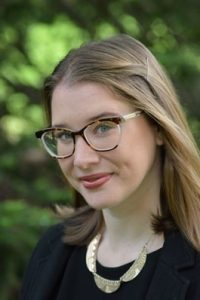

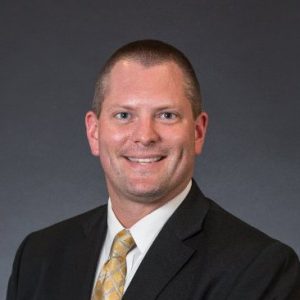
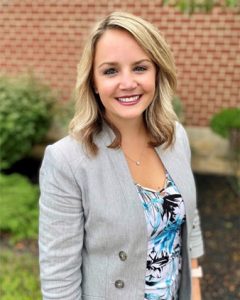
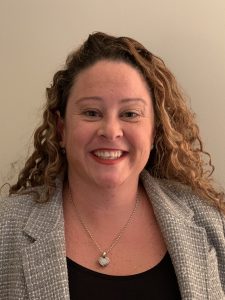 Danielle Murray, M.Ed.; National Board Certification EMLRLA: School Based Teacher Leader of Literacy at Spruance Elementary School, School District of Philadelphia. The development of literacy is a continued process for both students and teachers. I currently support teachers and students to grow in the field of literacy. The most impactful growth comes when we reflect on our strengths and weakness and become vulnerable to learn from others.
Danielle Murray, M.Ed.; National Board Certification EMLRLA: School Based Teacher Leader of Literacy at Spruance Elementary School, School District of Philadelphia. The development of literacy is a continued process for both students and teachers. I currently support teachers and students to grow in the field of literacy. The most impactful growth comes when we reflect on our strengths and weakness and become vulnerable to learn from others.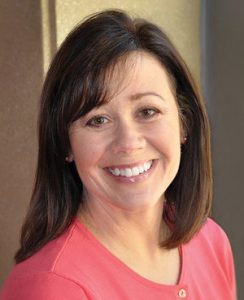 Grace’s love for gardening, dedication to teaching, and enthusiasm to work collaboratively have culminated in the foundation of The Edible Classroom. With education from Penn State Extension’s Master Gardener program and Longwood Gardens, she enjoys bringing science to life in the garden. Years serving as an Envirothon Coach and a Camp Director solidified her joyful education philosophy. Creatively engaging the minds and hands of students as co-founder of The Edible Classroom is her passion. Grace’s gardening adventures have taken her across Lancaster County, allowing her to “dig in the dirt” with children, senior citizens, and all ages in between. Grace lives in Washington Borough with her family.
Grace’s love for gardening, dedication to teaching, and enthusiasm to work collaboratively have culminated in the foundation of The Edible Classroom. With education from Penn State Extension’s Master Gardener program and Longwood Gardens, she enjoys bringing science to life in the garden. Years serving as an Envirothon Coach and a Camp Director solidified her joyful education philosophy. Creatively engaging the minds and hands of students as co-founder of The Edible Classroom is her passion. Grace’s gardening adventures have taken her across Lancaster County, allowing her to “dig in the dirt” with children, senior citizens, and all ages in between. Grace lives in Washington Borough with her family.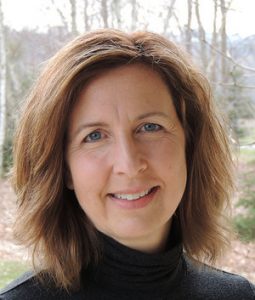 As cofounder of The Edible Classroom, Beth believes that fostering curiosity in the garden and sharing new food experiences are opportunities that all children should enjoy. Her own journey into school gardens began almost ten years ago when her children were in elementary school. After several years as a middle school teacher, her focus shifted from the walls of the traditional classroom to the experiential world of the garden classroom. Working with young people, collaborating with the community, growing food, and spending time outdoors continue to bring her great joy. Beth resides in Conestoga with her husband, Mike, their three children, and their dog.
As cofounder of The Edible Classroom, Beth believes that fostering curiosity in the garden and sharing new food experiences are opportunities that all children should enjoy. Her own journey into school gardens began almost ten years ago when her children were in elementary school. After several years as a middle school teacher, her focus shifted from the walls of the traditional classroom to the experiential world of the garden classroom. Working with young people, collaborating with the community, growing food, and spending time outdoors continue to bring her great joy. Beth resides in Conestoga with her husband, Mike, their three children, and their dog.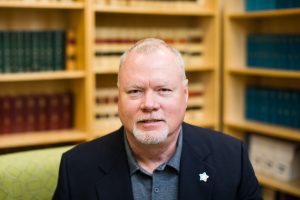
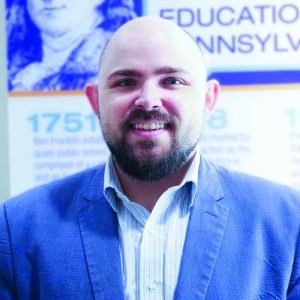
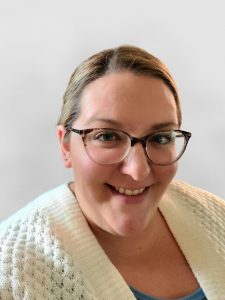
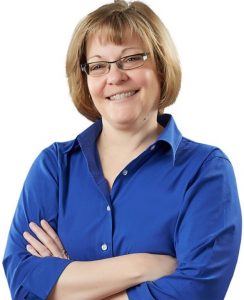
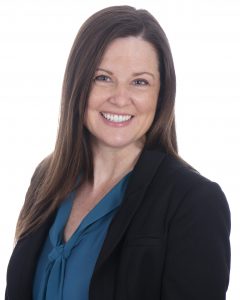
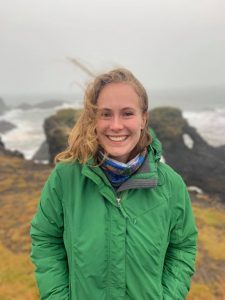
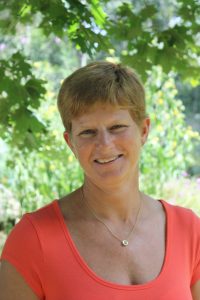
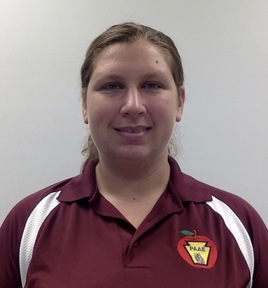
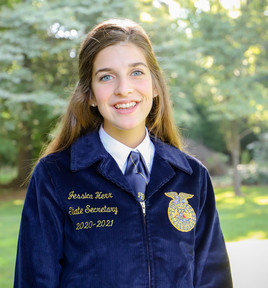
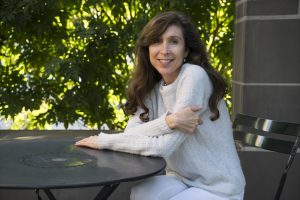
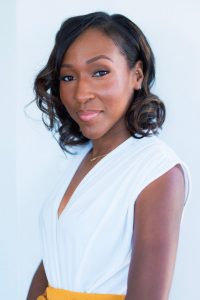
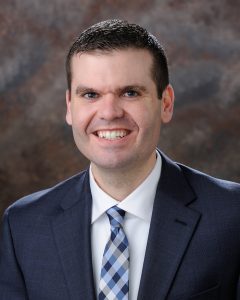
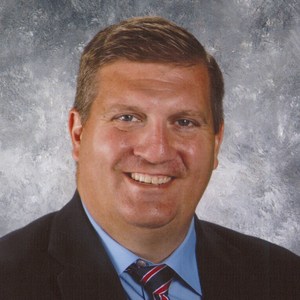
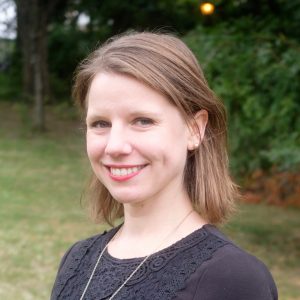
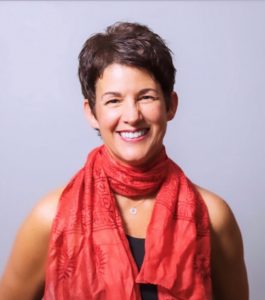
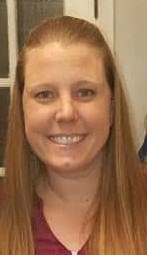
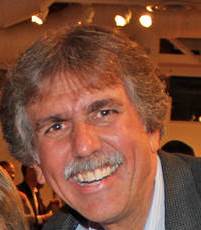
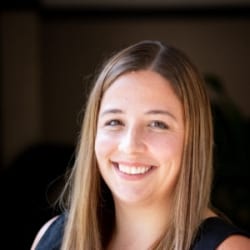
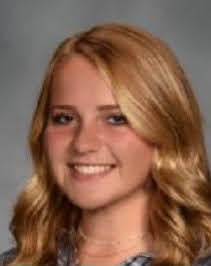 North Pocono High School sophomore, Carissa Stefanski, has over 5 years of experience with student council. Carissa has gained much knowledge with a tremendous amount of hard work. She has grown and improved her leadership skills with these student council opportunities. Carissa is the 2021 PASC State President. She has attended and participated in numerous PASC related events such as attending 3 PASC Summer Leadership Camps, 3 PASC State Conferences, 5 PASC Regional Conferences, and the 2020 Virtual National Student Council Conference. Carissa served as the PASC Region H Board for 2 years before being elected to the state president position. Carissa is very excited about her diversity presidential project and is working toward making a difference. She is also the 2023 class Historian for her high school. Carissa has a passion for student council, but she also has a great interest for Mini-THON and her school’s varsity tennis team.
North Pocono High School sophomore, Carissa Stefanski, has over 5 years of experience with student council. Carissa has gained much knowledge with a tremendous amount of hard work. She has grown and improved her leadership skills with these student council opportunities. Carissa is the 2021 PASC State President. She has attended and participated in numerous PASC related events such as attending 3 PASC Summer Leadership Camps, 3 PASC State Conferences, 5 PASC Regional Conferences, and the 2020 Virtual National Student Council Conference. Carissa served as the PASC Region H Board for 2 years before being elected to the state president position. Carissa is very excited about her diversity presidential project and is working toward making a difference. She is also the 2023 class Historian for her high school. Carissa has a passion for student council, but she also has a great interest for Mini-THON and her school’s varsity tennis team.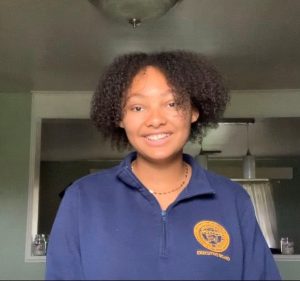
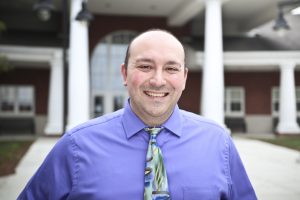
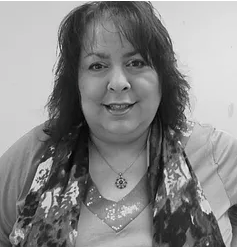
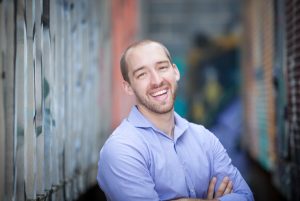
 , which are now being used to create conversations that matter within companies in over 80 countries around the world and on 6 of the 7 continents. (Free deck if you live in Antarctica.) Chad lives in Pittsburgh, PA with his wonderful wife and son, Kate and Otto, though they all travel often. View Chad’s full bio
, which are now being used to create conversations that matter within companies in over 80 countries around the world and on 6 of the 7 continents. (Free deck if you live in Antarctica.) Chad lives in Pittsburgh, PA with his wonderful wife and son, Kate and Otto, though they all travel often. View Chad’s full bio 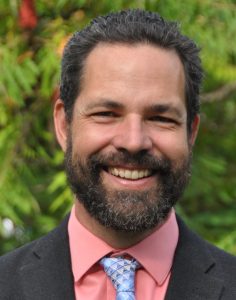
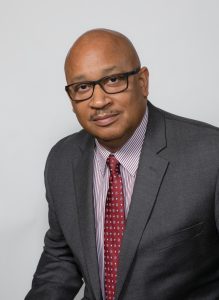 A highly regarded urban educator in New Jersey for more than 20 years, Principal Baruti Kafele distinguished himself as a master teacher and a transformational school leader. As an elementary school teacher in East Orange, NJ, he was selected as the East Orange School District and Essex County Public Schools Teacher of the Year, he was a New Jersey State Teacher of the Year finalist, and a recipient of the New Jersey Education Association Award of Excellence.
A highly regarded urban educator in New Jersey for more than 20 years, Principal Baruti Kafele distinguished himself as a master teacher and a transformational school leader. As an elementary school teacher in East Orange, NJ, he was selected as the East Orange School District and Essex County Public Schools Teacher of the Year, he was a New Jersey State Teacher of the Year finalist, and a recipient of the New Jersey Education Association Award of Excellence.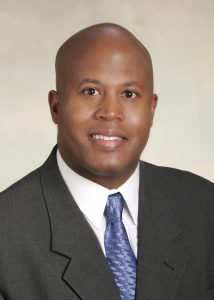 Dr. John W. Hodge is vice president of the Urban Learning and Leadership Center (ULLC), a staff development and training organization that serves school districts throughout the United States. An expert in assisting schools to plan and implement strategies for continuous improvement, his career has been defined by helping students and teachers overcome obstacles and achieve goals. Dr. Hodge’s presentations often serve as “the spark” for many schools in their quest to meet state and federal accreditation standards.
Dr. John W. Hodge is vice president of the Urban Learning and Leadership Center (ULLC), a staff development and training organization that serves school districts throughout the United States. An expert in assisting schools to plan and implement strategies for continuous improvement, his career has been defined by helping students and teachers overcome obstacles and achieve goals. Dr. Hodge’s presentations often serve as “the spark” for many schools in their quest to meet state and federal accreditation standards.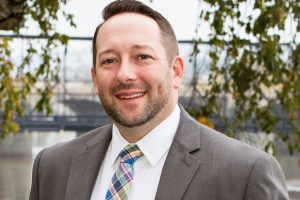 Bill is the Chairman of the Pennsylvania Esports Coalition, a nonprofit trade association created to advocate for esports and promote the industry throughout the Commonwealth. The Coalition was created in June of 2018 – and in that time has focused on educating legislators and decision makers on the positive impacts and opportunities that esports has had, and will continue to have across the Commonwealth.
Bill is the Chairman of the Pennsylvania Esports Coalition, a nonprofit trade association created to advocate for esports and promote the industry throughout the Commonwealth. The Coalition was created in June of 2018 – and in that time has focused on educating legislators and decision makers on the positive impacts and opportunities that esports has had, and will continue to have across the Commonwealth.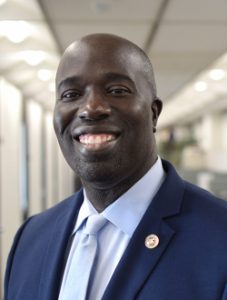 Jerry Mitchell is an Outreach Specialist with Pennsylvania Office of Attorney General. Jerry has been working in state government for 18 years, specializing in computer application development, cyber-crimes and fraud. In 1998, Jerry started his career with the Department of the Auditor General in the Office of Management Information Systems. Jerry’s work involved training more than 800 employees statewide on the latest application software and system protocols. Jerry lectured department employees on internet safety protocols and how to prevent identity thieves from stealing or cloning a person’s identity and personal devices. Jerry attended Harrisburg Area Community College and received his Trainer’s Certificate from Penn State Harrisburg.
Jerry Mitchell is an Outreach Specialist with Pennsylvania Office of Attorney General. Jerry has been working in state government for 18 years, specializing in computer application development, cyber-crimes and fraud. In 1998, Jerry started his career with the Department of the Auditor General in the Office of Management Information Systems. Jerry’s work involved training more than 800 employees statewide on the latest application software and system protocols. Jerry lectured department employees on internet safety protocols and how to prevent identity thieves from stealing or cloning a person’s identity and personal devices. Jerry attended Harrisburg Area Community College and received his Trainer’s Certificate from Penn State Harrisburg.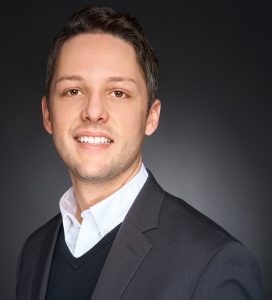 Daniel Eliot is director of education & strategic initiatives at the National Cyber Security Alliance (NCSA). In this role, he’s responsible for NCSA’s educational portfolio, and helms one of NCSA’s most successful initiatives, CyberSecure My Business, which is a national program designed to help organizations of all sizes learn to be safer and more secure online. Mr. Eliot assembles the federal government, state and local governments, academia, and the private sector to discuss cutting-edge issues and create and implement high-quality, large-scale education and awareness efforts. Daniel is an accomplished speaker and champion when it comes to cybersecurity, and regularly speaks at events across the country and collaborates on regional and national cybersecurity initiatives.
Daniel Eliot is director of education & strategic initiatives at the National Cyber Security Alliance (NCSA). In this role, he’s responsible for NCSA’s educational portfolio, and helms one of NCSA’s most successful initiatives, CyberSecure My Business, which is a national program designed to help organizations of all sizes learn to be safer and more secure online. Mr. Eliot assembles the federal government, state and local governments, academia, and the private sector to discuss cutting-edge issues and create and implement high-quality, large-scale education and awareness efforts. Daniel is an accomplished speaker and champion when it comes to cybersecurity, and regularly speaks at events across the country and collaborates on regional and national cybersecurity initiatives.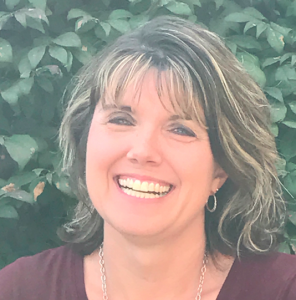 Amy Pfender
Amy Pfender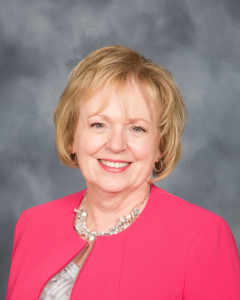
 Sarah Reinecker
Sarah Reinecker Gina Trimmer
Gina Trimmer
 Leona Strine
Leona Strine Janelle Rice
Janelle Rice Krissy Sprankle
Krissy Sprankle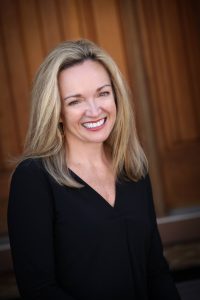 Angela Jerabek is the Founder and Executive Director of BARR Center®. The BARR Center (Building Assets, Reducing Risks) is a model that improves the education system with intentionally deepened relationships and a data-driven, personalized and supportive approach. BARR aligns students, teachers, staff, and families with a unified culture of support and success so that, together, we can build stronger schools and communities.
Angela Jerabek is the Founder and Executive Director of BARR Center®. The BARR Center (Building Assets, Reducing Risks) is a model that improves the education system with intentionally deepened relationships and a data-driven, personalized and supportive approach. BARR aligns students, teachers, staff, and families with a unified culture of support and success so that, together, we can build stronger schools and communities.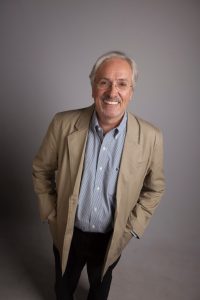 Dr. Will Miller has been studying and researching the issue of social connection and isolation for 25 years. He teaches social media strategies at Purdue University’s graduate Communication Department. A therapist and health psychologist, he is a Certified Clinical Trauma Specialist who works with police, firefighters and other first responders on coping and wellness. In addition to his extensive academic resume, Miller was also a professional standup comedian in New York for 20 years. He brings the perfect balance of research data along with an engaging style to both his live and webinar presentations.
Dr. Will Miller has been studying and researching the issue of social connection and isolation for 25 years. He teaches social media strategies at Purdue University’s graduate Communication Department. A therapist and health psychologist, he is a Certified Clinical Trauma Specialist who works with police, firefighters and other first responders on coping and wellness. In addition to his extensive academic resume, Miller was also a professional standup comedian in New York for 20 years. He brings the perfect balance of research data along with an engaging style to both his live and webinar presentations.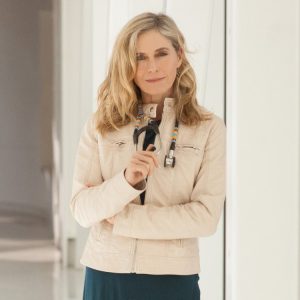 Delaney Ruston is the creator and director of the award-winning films, Screenagers and Screenagers NEXT CHAPTER. Dr. Ruston is a Stanford trained physician who has spent 20 years creating documentaries for social change. For nearly a decade she has been researching and speaking with parents, students, teachers, and administrators about how we can help youth find balance and emotional wellbeing in these complicated tech times. Delaney has been featured in the Wall Street Journal, Good Morning America, Dr. Oz, the New York Times, and hundreds of other news outlets. She is an invited speaker to many education conferences and schools as well as places such as The World Health Organization, The United Nations, Google, and Facebook. She has been a researcher and physician at The University of Washington and at Stony Brook Medical School in New York and for the past 15 years, she works part-time doing what she also loves which is providing primary care to the underserved, including Seattle’s Clinic for homeless teens.
Delaney Ruston is the creator and director of the award-winning films, Screenagers and Screenagers NEXT CHAPTER. Dr. Ruston is a Stanford trained physician who has spent 20 years creating documentaries for social change. For nearly a decade she has been researching and speaking with parents, students, teachers, and administrators about how we can help youth find balance and emotional wellbeing in these complicated tech times. Delaney has been featured in the Wall Street Journal, Good Morning America, Dr. Oz, the New York Times, and hundreds of other news outlets. She is an invited speaker to many education conferences and schools as well as places such as The World Health Organization, The United Nations, Google, and Facebook. She has been a researcher and physician at The University of Washington and at Stony Brook Medical School in New York and for the past 15 years, she works part-time doing what she also loves which is providing primary care to the underserved, including Seattle’s Clinic for homeless teens.
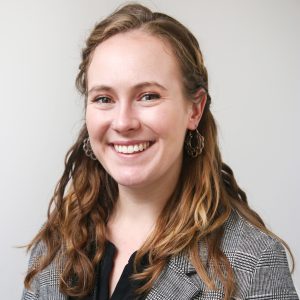 Kira Heeschen, Education Coordinator, Earth Day Network
Kira Heeschen, Education Coordinator, Earth Day Network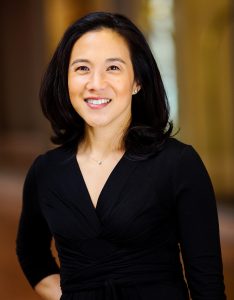 Angela Duckworth is the Founder and CEO of
Angela Duckworth is the Founder and CEO of 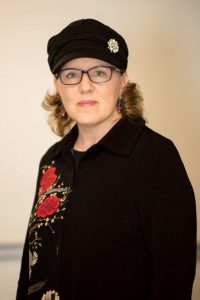
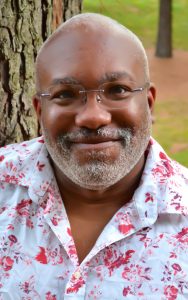
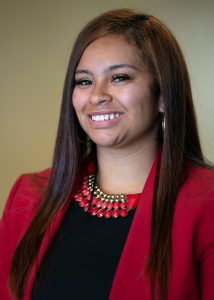
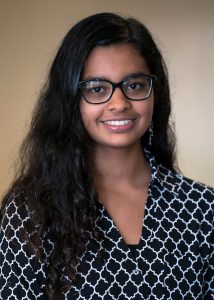
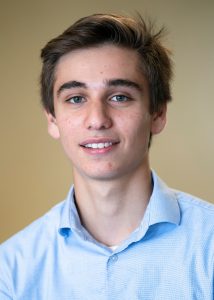
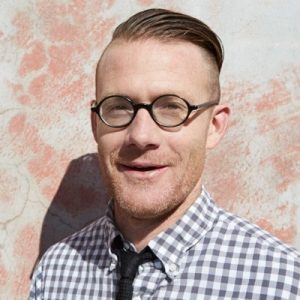 Jonathan Mooney is an award winning writer, entrepreneur, and activist who did not learn to read until he was twelve years old.
Jonathan Mooney is an award winning writer, entrepreneur, and activist who did not learn to read until he was twelve years old.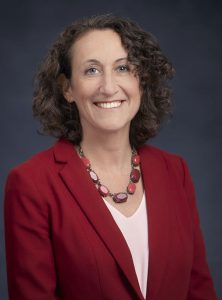 Kathy Boockvar, Secretary of the Commonwealth
Kathy Boockvar, Secretary of the Commonwealth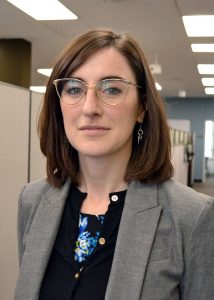
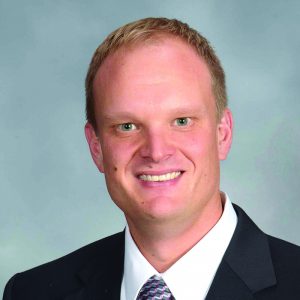
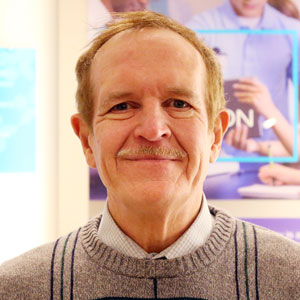
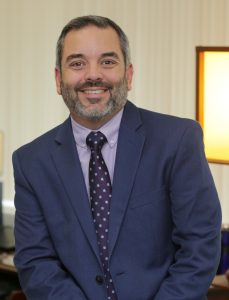 Matthew Stem, Deputy Secretary
Matthew Stem, Deputy Secretary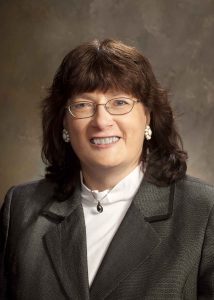 Lee Burket, Director for Bureau of Career and Technical Education
Lee Burket, Director for Bureau of Career and Technical Education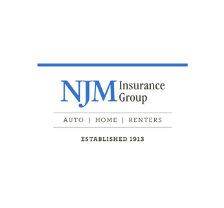
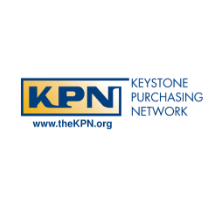
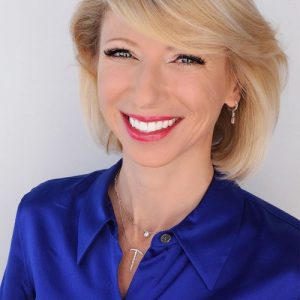 Social psychologist, award-winning Harvard lecturer and best-selling author, Dr. Amy Cuddy is an expert on the behavioral science of power, presence, purpose and prejudice. She is a member of the Harvard Business School Executive Education Faculty and the author of New York Times best seller, Presence: Bringing Your Boldest Self to Your Biggest Challenges. Her 2012 TED Talk, “Your Body Language May Shape Who You Are,” has been viewed more than 53 million times.
Social psychologist, award-winning Harvard lecturer and best-selling author, Dr. Amy Cuddy is an expert on the behavioral science of power, presence, purpose and prejudice. She is a member of the Harvard Business School Executive Education Faculty and the author of New York Times best seller, Presence: Bringing Your Boldest Self to Your Biggest Challenges. Her 2012 TED Talk, “Your Body Language May Shape Who You Are,” has been viewed more than 53 million times.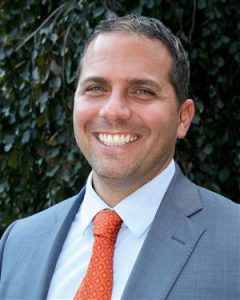 Dr. John Rozzo, superintendent of schools, Upper St. Clair SD
Dr. John Rozzo, superintendent of schools, Upper St. Clair SD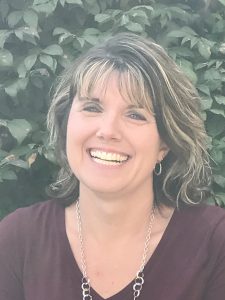 Mrs. Amy Pfender, assistant to the superintendent, Upper St. Clair SD
Mrs. Amy Pfender, assistant to the superintendent, Upper St. Clair SD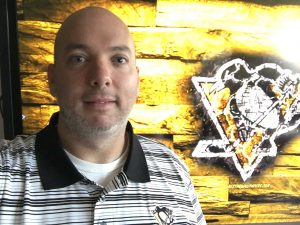 Mr. Black is in his 18th year of teaching overall and 8th year teaching in the STEM position at David E. William Middle School in the Montour School District. Mr. Black is a Project Lead The Way certified K-8 teacher with certifications in the Launch and Gateway To Technology Programs. He also has his level II certification with artificial intelligence through a local leading AI education company called Ready AI. Mr. Black brings AI to the students utilizing Anki’s Cozmo Robot and Dr. David Touretzky’s calypso programming tool. Mr. Black teaches a wide variety of skills from building VEX Robots with 5th graders, solving everyday problems with 6th grade utilizing the design process and solving worldly problems through AI on a small scale with his 7th and 8th graders.
Mr. Black is in his 18th year of teaching overall and 8th year teaching in the STEM position at David E. William Middle School in the Montour School District. Mr. Black is a Project Lead The Way certified K-8 teacher with certifications in the Launch and Gateway To Technology Programs. He also has his level II certification with artificial intelligence through a local leading AI education company called Ready AI. Mr. Black brings AI to the students utilizing Anki’s Cozmo Robot and Dr. David Touretzky’s calypso programming tool. Mr. Black teaches a wide variety of skills from building VEX Robots with 5th graders, solving everyday problems with 6th grade utilizing the design process and solving worldly problems through AI on a small scale with his 7th and 8th graders.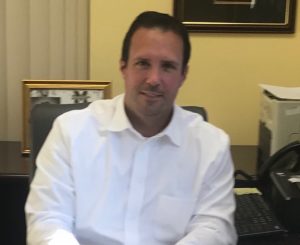 Mr. Salpeck began his career in public education in January of 2001 as a social studies teacher at Sto-Rox Middle School/ Sto-Rox High School. In November of 2008, Dominic was hired as a principal at David E. Williams Middle School in the Montour School District. His passion for education includes action planning, progress monitoring, challenging students/ staff/ self to grow, and positive school culture supported by effective discipline.
Mr. Salpeck began his career in public education in January of 2001 as a social studies teacher at Sto-Rox Middle School/ Sto-Rox High School. In November of 2008, Dominic was hired as a principal at David E. Williams Middle School in the Montour School District. His passion for education includes action planning, progress monitoring, challenging students/ staff/ self to grow, and positive school culture supported by effective discipline.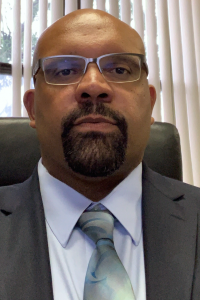 Ken E. Nickson, Jr., Coordinator of Diversity, Equity, and Inclusion for Erie Public Schools
Ken E. Nickson, Jr., Coordinator of Diversity, Equity, and Inclusion for Erie Public Schools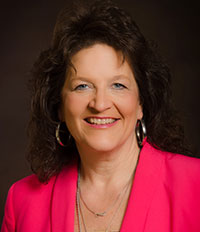 M. Holly Morrison, D.Ed., President and CEO of Central Susquehanna Community Foundation
M. Holly Morrison, D.Ed., President and CEO of Central Susquehanna Community Foundation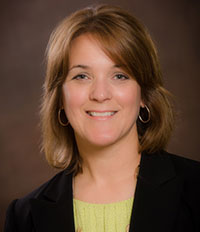 Kara G. Seesholtz, Chief Advancement Officer of Central Susquehanna Community Foundation
Kara G. Seesholtz, Chief Advancement Officer of Central Susquehanna Community Foundation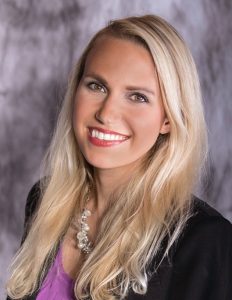 Larissa joined the American Heart Association as communications director in June 2012. She is based in Harrisburg, Pa. and covers the Central PA, Lehigh Valley and Northeast PA regions. Larissa previously served as a public relations officer for the Pennsylvania Department of Health and Department of State, as well as served as the constituent services director for the Office of the Governor. She is also the immediate past president of the Pennsylvania Public Relations Society. Larissa is a summa cum laude graduate of Temple University with a bachelor’s degree in Film and Media Arts and a minor in political science, and is the proud daughter of a retired teacher.
Larissa joined the American Heart Association as communications director in June 2012. She is based in Harrisburg, Pa. and covers the Central PA, Lehigh Valley and Northeast PA regions. Larissa previously served as a public relations officer for the Pennsylvania Department of Health and Department of State, as well as served as the constituent services director for the Office of the Governor. She is also the immediate past president of the Pennsylvania Public Relations Society. Larissa is a summa cum laude graduate of Temple University with a bachelor’s degree in Film and Media Arts and a minor in political science, and is the proud daughter of a retired teacher.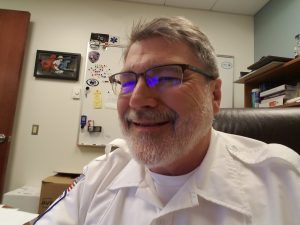 Steve Poffenberger currently serves as the director of quality/staff development at Geisinger EMS (Geisinger Holy Spirit). He has been with the agency since October 1985 and has been an EMS provider for 43 years. He has acted as a paramedic program coordinator for HACC for the past 30 years. Steve volunteers for the American Heart Association on the PA Policy Advocacy Committee. He holds a Bachelor of Science degree from The Pennsylvania State University and currently lives in Dauphin, PA with his wife, Kathy.
Steve Poffenberger currently serves as the director of quality/staff development at Geisinger EMS (Geisinger Holy Spirit). He has been with the agency since October 1985 and has been an EMS provider for 43 years. He has acted as a paramedic program coordinator for HACC for the past 30 years. Steve volunteers for the American Heart Association on the PA Policy Advocacy Committee. He holds a Bachelor of Science degree from The Pennsylvania State University and currently lives in Dauphin, PA with his wife, Kathy.
 As Director of Policy & Partnerships at NSLA, Rachel Gwaltney leads the research, development, and implementation of services, resources, and partnerships that improve and sustain policy conditions for summer learning. This includes educating and mobilizing the national network of summer learning advocates to make the case for summer to policymakers. Rachel also oversees NSLA’s efforts to grow and promote the research on summer gaps, opportunities, and best practices.
As Director of Policy & Partnerships at NSLA, Rachel Gwaltney leads the research, development, and implementation of services, resources, and partnerships that improve and sustain policy conditions for summer learning. This includes educating and mobilizing the national network of summer learning advocates to make the case for summer to policymakers. Rachel also oversees NSLA’s efforts to grow and promote the research on summer gaps, opportunities, and best practices.